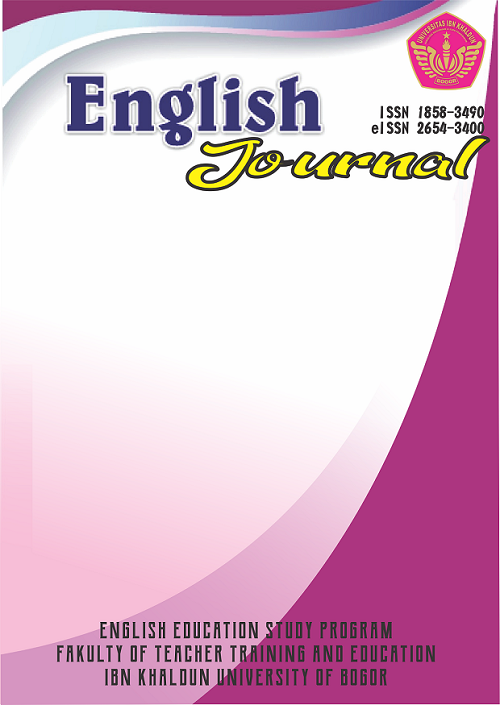STUDENTS' CHALLENGES AND STRATEGIES IN DEVELOPING LANGUAGE SKILLS IN INTERNATIONAL CLASS PROGRAM OF IAIN SALATIGA
DOI:
https://doi.org/10.32832/english.v16i1.6972Abstract
International class program has become one of the excellent programs in universities around the world, likewise in Indonesia. International Class Program students are prepared to be individuals who are ready to compete in International scale. In order to manifest this purpose, International Class Program of IAIN Salatiga created various programs to improve the quality, creativity, achievement, and noble character of the students. In order to improve students' language abilities, International Class Program facilitates the students by creating various language development programs. The language development programs are held in both the classroom and the students' dormitories. The purpose of the study was to know the students' challenges and strategies in developing their language skills in International Class Program (ICP) of IAIN Salatiga. The research was qualitative research. The respondents of this research were 32 students of International Class Program of IAIN Salatiga from batch 2017, 2018, 2019, and 2020. Questionnaire and interview were conducted in order to collect the data. The data was analyzed and interpreted through qualitative procedure. The findings showed that students face challenges such as lack of vocabularies, learning mood, time management, and the need of supervisor for language development programs implementation in ICP students' dormitories. The findings also showed that students have strategies to deal with those challenges such as writing down new vocabularies, keeping the mood for learning, managing time by steal time to study the language, and practicing the languages every time in students' dormitories by making rules for their own rooms, creating a study club and study together.
References
Arikunto, S. (2002). Metodologi Penelitian Suatu Pendekatan Proposal. Jakarta: PT. Rineka Cipta.
Chen, T. Y., & Chang, G. B. (2004). The Relationship between Foreign Language Anxiety and Learning Difficulties. Foreign Language Annals, 37(2), 278-289.
Danim, S. (2002). Menjadi Peneliti Kualitatif Rancangan Metodologi, Presentasi, dan Publikasi Hasil Penelitian untuk Mahasiswa dan Penelitian Pemula Bidang Ilmu Sosial, Pendidikan, dan Humaniora, Bandung: Remaja Rosdakarya.
Ewald, J.D. (2007). Foreign language learning anxiety in upper-level classes: involving students as researchers. [Electronic version]. Foreign Language Annals, 40(1), 122-142.
Hamzah, B., Uno. (2008). Teori Motivasi dan Pengukurannya, Jakarta: Bumi Aksara.
Isyam, A. (1998). Cara-Cara Belajar Bahasa Asing Yang Lebih Baik (Terjemahan/Tidak diterbitkan).
Moleong, Lexy, J. (2000). Metodologi Penelitian Kualitatif. Bandung: PT Remaja Rosdakarya.
Nunan, David. (1991). Language Teaching Methodology: A textbook for teachers. Hertfordshire: Prentice Hall International (UK) Ltd.
Salovaara, H. (2005). Disertasi: Achievement Goals and Cognitive Learning Strategies In Dynamic Contexts Of Learning. Oulu: University of Oulu.
Satori, Djam'an. (2011). Metodologi Penelitian Kualitatif. Bandung: Alfabeta.
Sugiyono. (2012). Metode Penelitian Kuantitatif Kualitatif dan R&B. Bandung: Alfabeta.

















1.png)




